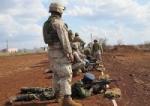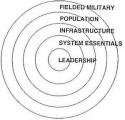Drug traffickers in the war-torn Helmand province have been winning public support by distributing some of their ill-gotten gains to the poor during the fasting month of Ramadan.
Many people interviewed by IWPR said the traffickers had given out food and clothing to some of Helmand’s neediest families during the holy month and the Eid al-Fitr festival which marks its end.
“May God bless them [the traffickers],”said Faizullah, a resident of the Washir district, which has been under Taleban control for over six months. “People have been very happy during Ramadan. The traffickers have helped us in many ways, like giving out clothes for Eid, distributing food and other things.”
The growing Taleban insurgency in Helmand has proved a boon to the drugs trade, since government eradicators cannot get into many areas to monitor or destroy the opium poppy crop. The chaos has kept out aid agencies and prevented any meaningful development from taking place, something that has caused resentment and anger among local people.
In return for protection, drug traffickers are believed to be providing money and weapons to the Taleban.
One smuggler in Washir, who did not want to be named, said he had distributed goods worth 200,000 Pakistani rupees, or 3,300 US dollars, in the last four weeks. The rupee is in common use in this southern province, often edging out the national currency, the afghani.
“I distributed [charity] to the poor in the shape of food and clothing during the holy month of Ramadan,” said the smuggler. “We are Muslims and we are obliged to give alms. I gave most of it to the poor, and a small amount to the Taleban who are fighting for Islam ...”















Bookmarks